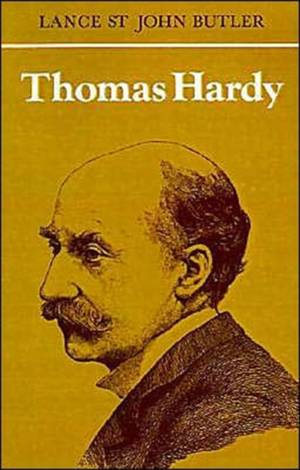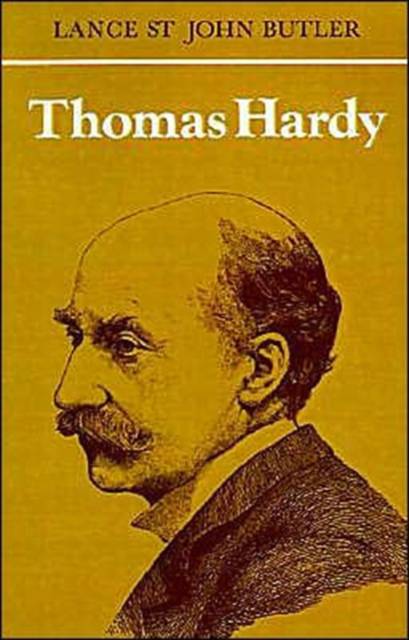
- Retrait gratuit dans votre magasin Club
- 7.000.000 titres dans notre catalogue
- Payer en toute sécurité
- Toujours un magasin près de chez vous
- Retrait gratuit dans votre magasin Club
- 7.000.0000 titres dans notre catalogue
- Payer en toute sécurité
- Toujours un magasin près de chez vous
Description
Hardy now seems a more important novelist and poet than at any previous time. This importance is only partly due to his capabilities as a social historian or provincial chronicler. Far more important than these is his faithful exploration of the daily trials and tragedies of men and women as feeling beings. Man and woman in love, man and woman 'up against it', are his theme.
Mr. Butler's study of his work emphasizes this central aspect of Hardy's fiction and poetry. His tendency to universalize his tragic material, in which he is akin to Shakespeare, is seen as his abiding achievement. Detailed analyses are made of some crucial passages in the major novels and a serious attempt is made to counter the proposition that Hardy 'wrote badly'. Some of his quirkier writing is looked at honestly, but the conclusion is that Hardy was a novelist who, above all, know what he was doing and did it well.
Spécifications
Parties prenantes
- Auteur(s) :
- Editeur:
Contenu
- Nombre de pages :
- 188
- Langue:
- Anglais
- Collection :
Caractéristiques
- EAN:
- 9780521292719
- Date de parution :
- 28-02-78
- Format:
- Livre broché
- Format numérique:
- Trade paperback (VS)
- Dimensions :
- 140 mm x 217 mm
- Poids :
- 272 g

Les avis
Nous publions uniquement les avis qui respectent les conditions requises. Consultez nos conditions pour les avis.






